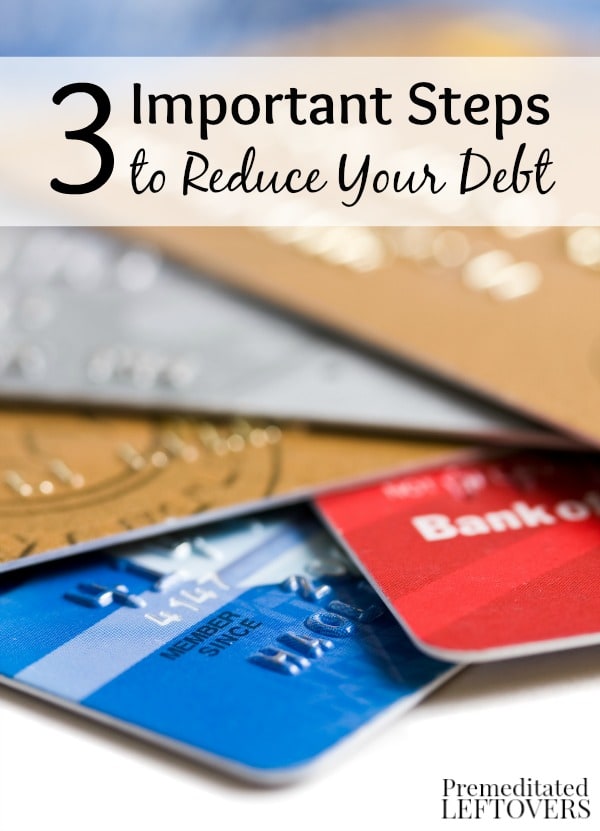Over half of the nation is in debt. School loans, car loans, medical loans, buying a home, credit card debt, it all surrounds us. But what if there was a way to get out of debt easily? Now don’t get me wrong, this is going to take time no matter how you go about it. The goal is to set up a plan, get it moving, and get that debt paid off. You can set time limits if you would like, but sticking to a consistent schedule of paying it off is what’s going to get you out of debt without hassle. These 3 Important Steps to Reduce Your Debt are a great place to get started.
3 Important Steps to Reduce Your Debt
Stop Borrowing. For some people this is a very hard thing to do, stop borrowing the money that is getting you further into debt. If you just bought a new home (which isn’t always bad debt), maybe you should stick with the car that you have rather than buying a new one. If you have student loans, maybe you should hold off on buying that house for a year or so until you can knock some of that debt down. Overall, just stop borrowing. The main task here is to get rid of those credit cards. Cut them up, throw them out, and get rid of them! They are getting you into more trouble! If you still need to build your credit, keep one (yes, just one, and no more) credit card that you use for something such as gas every week. At the end of the month, or on its due date, pay it off in full, not a “payment”, pay off that entire balance.
Keep “safe” money on hand. Another helpful idea is to save up some “safe” money. Most people feel safe with having an extra $1000, that they keep in the bank at all times. If something were to happen, say an emergency, the furnace breaks in the middle of winter, you have an unexpected car fix in-between paychecks, etc. You will have that safe money to fall back on instead of taking out another loan or borrowing from another credit line.
Budget, budget, budget, plan! If you want to save money, pay off debts, and still keep money in your savings account, then it’s time to come up with a budget. Sit down and write down every single thing that you pay for each month, and I mean everything. Bills, credit cards, online payments for subscriptions, subscription boxes, Netflix, Hulu- anything that you pay for on a monthly basis. Make sure you figure in gas and grocery money as well. Then, go through and see if there is anything that you can get rid of. Do you use those streaming channels? Do you need that monthly subscription? Shop sales, save money, and be conscious about how much gas you are using. Give yourself a requirement of “x” amount of money towards debt, and “x” amount of money into savings each month.
More Budgeting Tips:
How To Budget (For People That Hate Budgeting)
How to Budget Money with 10 Simple Hacks
5 Tips for Staying Motivated to Stick to Your Budget
5 Things You Are Forgetting to Include in Your Budget
How to Create a Family Budget that Works
Thanks for sharing your personal finance tips Mariah.


Leave a Reply